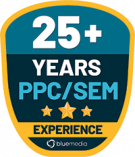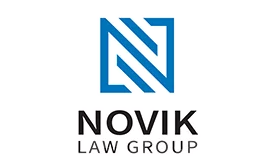Some of the best SEO for personal injury law firms strategies include:
Local SEO: Since personal injury cases are often handled locally, optimizing for local search results can make a significant difference in attracting new clients. Claiming and optimizing your Google My Business listing, getting listed in local directories, writing SEO-optimized content using specific locations, and ensuring NAP (Name, Address, Phone Number) consistency across the web are all SEO strategies that can increase the effectiveness of a law firm’s online marketing efforts.
Keyword Research: Thorough keyword research should be done to identify terms and phrases potential clients use when searching for personal injury legal services. Focusing on a mix of broad and long-tail keywords, including case types (e.g., “car accident lawyer”) and location-based terms (e.g., “personal injury attorney in [City]”).
Instead of casting a wide net with generic terms, SEO for a personal injury lawyer optimizes for exact keywords that are most likely to bring in qualified traffic that converts into new clients. Specific keyword research uncovers niche keywords or less competitive terms that competitors might overlook. By ranking for these keywords, a law firm can capture traffic from underserved segments of their target market. This keyword research reveals trends and shifts in what potential clients are concerned about or interested in which can guide SEO website content strategy and broader marketing offerings.
High-Quality Content Creation: Create valuable, informative content that addresses common questions and concerns of personal injury clients. Blog posts, FAQs, and resource guides on topics like the personal injury claim process, types of compensation, and what to do after an accident, engage users and improve search rankings.
On-Page SEO: Optimizes website pages with targeted keywords in titles, meta descriptions, headers, and throughout the content. Ensure your website structure is user-friendly, with clear navigation and internal linking to relevant sections and articles.
Mobile Optimization: Potential clients will use smartphones for internet searches, so ensure your website is mobile-friendly. A responsive design adapts to various screen sizes, improving the user experience and SEO.
Speed Optimization: Website load speed is essential for both user experience and search engine rankings. Optimize images, leverage browser caching, and minimize code to speed up your website.
Online Reviews and Testimonials: Encourage satisfied clients to leave positive reviews on your Google My Business listing and other review platforms. Authentic reviews can improve your local SEO visibility and persuade potential clients to choose your firm.
Social Media Presence: While not a direct SEO factor, an active social media presence can increase brand visibility and drive traffic to your website. Share your content, engage with your audience, and participate in relevant conversations.
Monitor and Adjust: Successful SEO is not a set-it-and-forget-it strategy. Your SEO should regularly monitor your website’s performance using tools like Google Analytics and Google Search Console. An effective SEO specialist will adjust your strategies based on what’s working and what’s not.
Implementing these strategies requires patience and persistence since SEO results take time to manifest. Strong SEO for a personal injury attorney is vital for long-term success in the competitive legal market.






































































